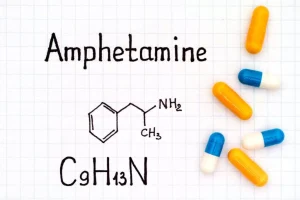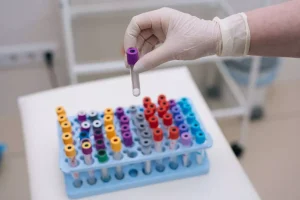
One size does not fit all and a treatment approach that may work for one person may not work for another. Treatment can be outpatient and/or inpatient and be provided by specialty programs, therapists, and health care providers. Based on clinical experience, many health care providers believe that support from friends and family members is important in overcoming alcohol problems. But friends and family may feel unsure about how best to provide the support needed. The groups for family and friends listed in the “Resources” section may be a good starting point. Just as some people with diabetes or asthma may have flare-ups of their disease, a return to drinking can be seen as a temporary setback to full recovery and not as a failure.
Which is the most successful type of treatment for AUD?
Talking about an active substance use disorder can be tricky, and it’s essential that you take steps to ensure that your conversation is as productive and effective as possible. The same survey found that alcohol addiction help 11.2% of adults are currently living with an alcohol use disorder. To learn more about alcohol treatment options and search for quality care near you, please visit the NIAAA Alcohol Treatment Navigator.
Can People With Alcohol Use Disorder Recover?
No amount of alcohol use is safe, but the severity of alcohol-related consequences quickly escalates when people develop an addiction. Uncontrolled alcohol use can affect nearly every aspect of your loved one’s life, and most people will need the help of professional addiction treatment services in order to recover. When a friend or family member is living with an alcohol addiction, it’s only natural for you to want to help.

Professional Associations of Medical and Nonmedical Addiction Specialists
The one that’s right for you depends on your situation and your goals. Many people find that a combination of treatments works best, and you can get them together through a program. Some of these are inpatient or residential programs, where you stay at a treatment center for a while. Others are outpatient programs, where you live at home and go to the center for treatment. An important first step is to learn more about alcohol use disorder and your treatment options.
- It also is essential that the provider tailor treatment, which may include behavioral therapies and medications, to an individual’s specific combination of disorders and symptoms.
- For many, continued follow-up with a treatment provider is critical for overcoming alcohol problems.
- Recovery signals a dramatic shift in the expectation for positive outcomes for individuals who experience mental and substance use conditions or the co-occurring of the two.
- Behavioral therapies can help people develop skills to avoid and overcome triggers, such as stress, that might lead to drinking.
Research Funded by NIMH

Outpatient treatment programs are often a lot more affordable. Even if you don’t have insurance, many programs have a total cost of less than $1,000, including all treatments for the duration of your program. Inpatient programs that provide their costs online list prices ranging between $2,000 and $40,000.
- If your provider suspects that you have a problem with alcohol, you may be referred to a mental health provider.
- Drugs used for other conditions — like smoking, pain, or epilepsy — also may help with alcohol use disorder.
- Mindfulness-based skill-building strategies promote flexible, rather than autopilot, responses to triggers that can prompt drinking.
- Due to the risk of severe or complicated alcohol withdrawal in some individuals, it may be necessary for those seeking recovery to be evaluated by a mental health professional.
- We also explore how to approach and support someone with AUD, and offer self-care advice for people recovering from AUD.
Learn more about NIMH research areas, policies, resources, and initiatives. Learn more about NIMH newsletters, public participation in grant reviews, research funding, clinical trials, the NIMH Gift Fund, and connecting with NIMH on social media. Find out how NIMH engages a range of stakeholder organizations as part of its efforts to ensure the greatest public health impact of the research we support. If you or someone you know has a mental illness, there are ways to get help.

Most recently, real-world human studies have been very positive in reporting decreases in drinking for diabetic patients treated with GLP-1s (think Ozempic and Wegovy). Animal studies also show that GLP-1 receptor agonists suppress the rewarding effects of alcohol and reduce alcohol consumption. Because https://ecosoberhouse.com/ denial is common, you may feel like you don’t have a problem with drinking. You might not recognize how much you drink or how many problems in your life are related to alcohol use. Listen to relatives, friends or co-workers when they ask you to examine your drinking habits or to seek help.
- Alcoholics Anonymous (AA), with 2.1 million members worldwide, has assisted people to regain control over alcohol use since 1935.
- Also known as “alcohol counseling,” behavioral treatments involve working with a health care provider to identify and help change the behaviors that lead to alcohol problems.
- The result is among the findings now released from SAMHSA’s National Survey on Drug Use and Health for 2023.
- Consider talking with someone who has had a problem with drinking but has stopped.
Residential treatment programs
Three medications are currently approved in the United States to help people stop or reduce their drinking and prevent a return to drinking. These medications are prescribed by a primary care provider or other health care provider and may be used alone or in combination with counseling. Researchers at NIMH and around the country conduct many studies with patients and healthy volunteers. We have new and better treatment options today because of what clinical trials uncovered years ago. Talk to your health care provider about clinical trials, their benefits and risks, and whether one is right for you. The National Institute of Alcohol Abuse and Alcoholism (NIAAA) encourages medical providers to screen patients for alcohol consumption and initiate interventions aimed at harm reduction.
Next, they may need to be closely monitored by a team of medical professionals at a medical detox and alcohol withdrawal management program. During inpatient programs, support such as education and counseling is part of treatment. People attending inpatient rehab can also receive treatment for any mental health conditions that might be contributing to their alcohol misuse.
